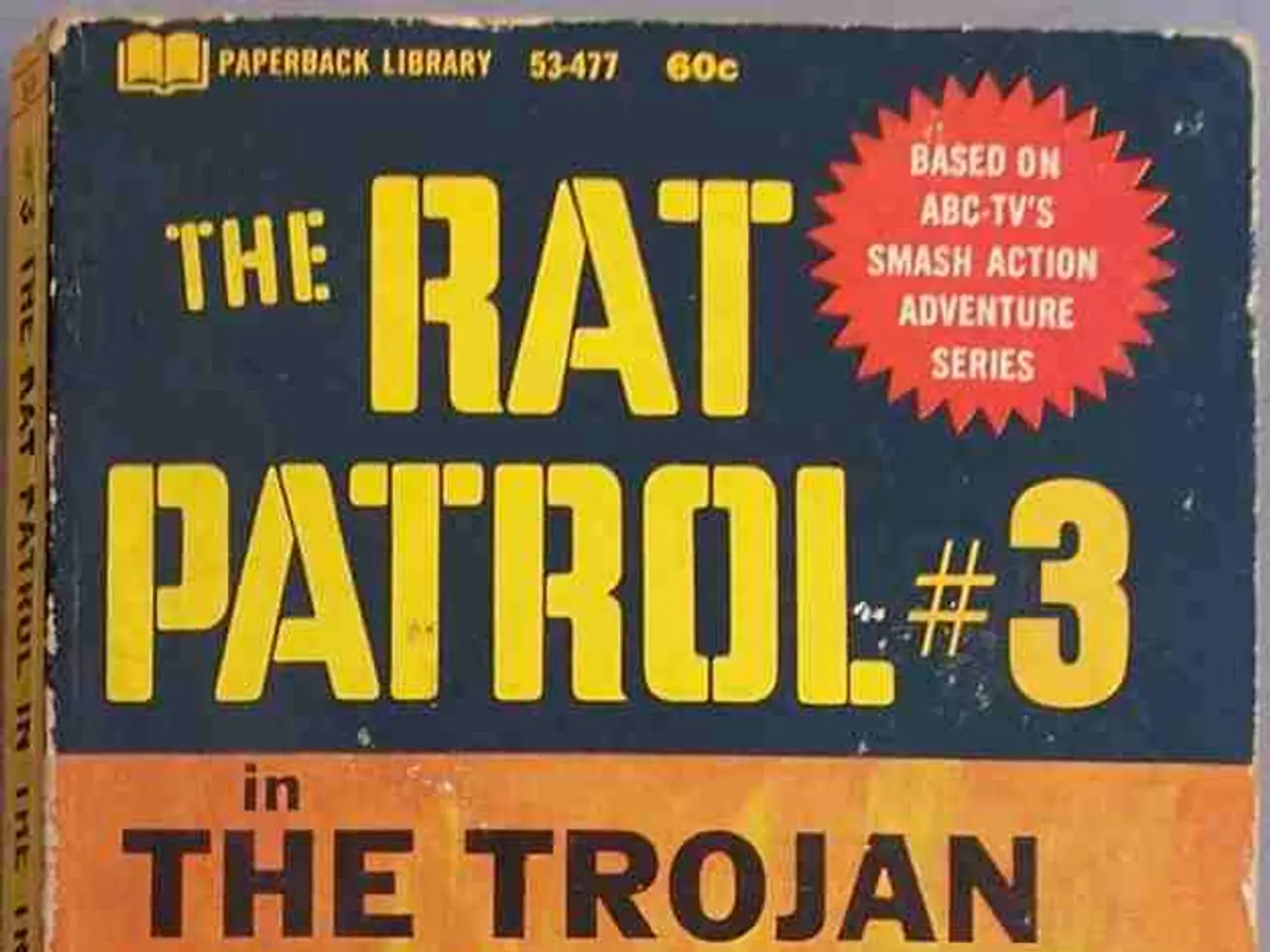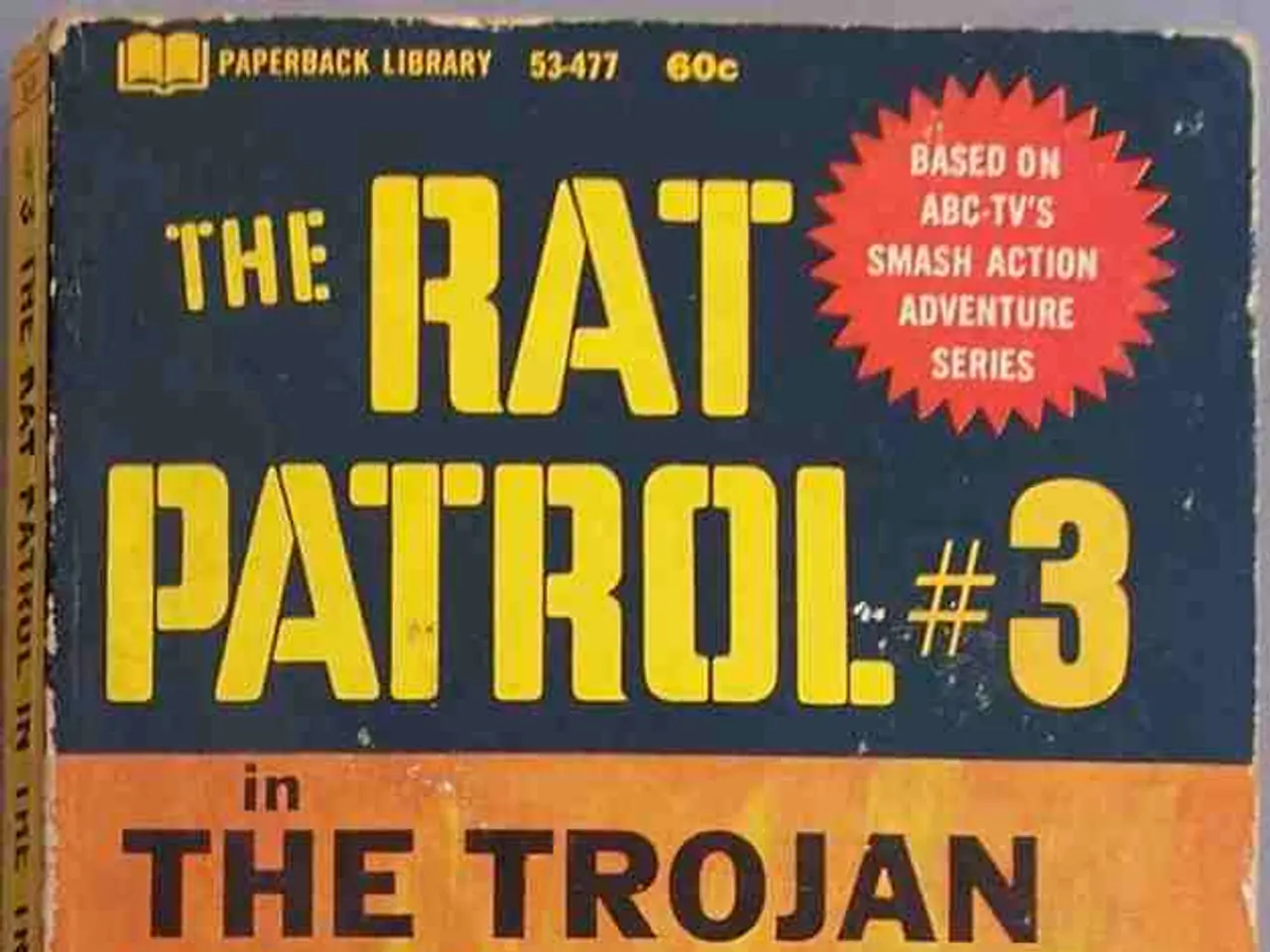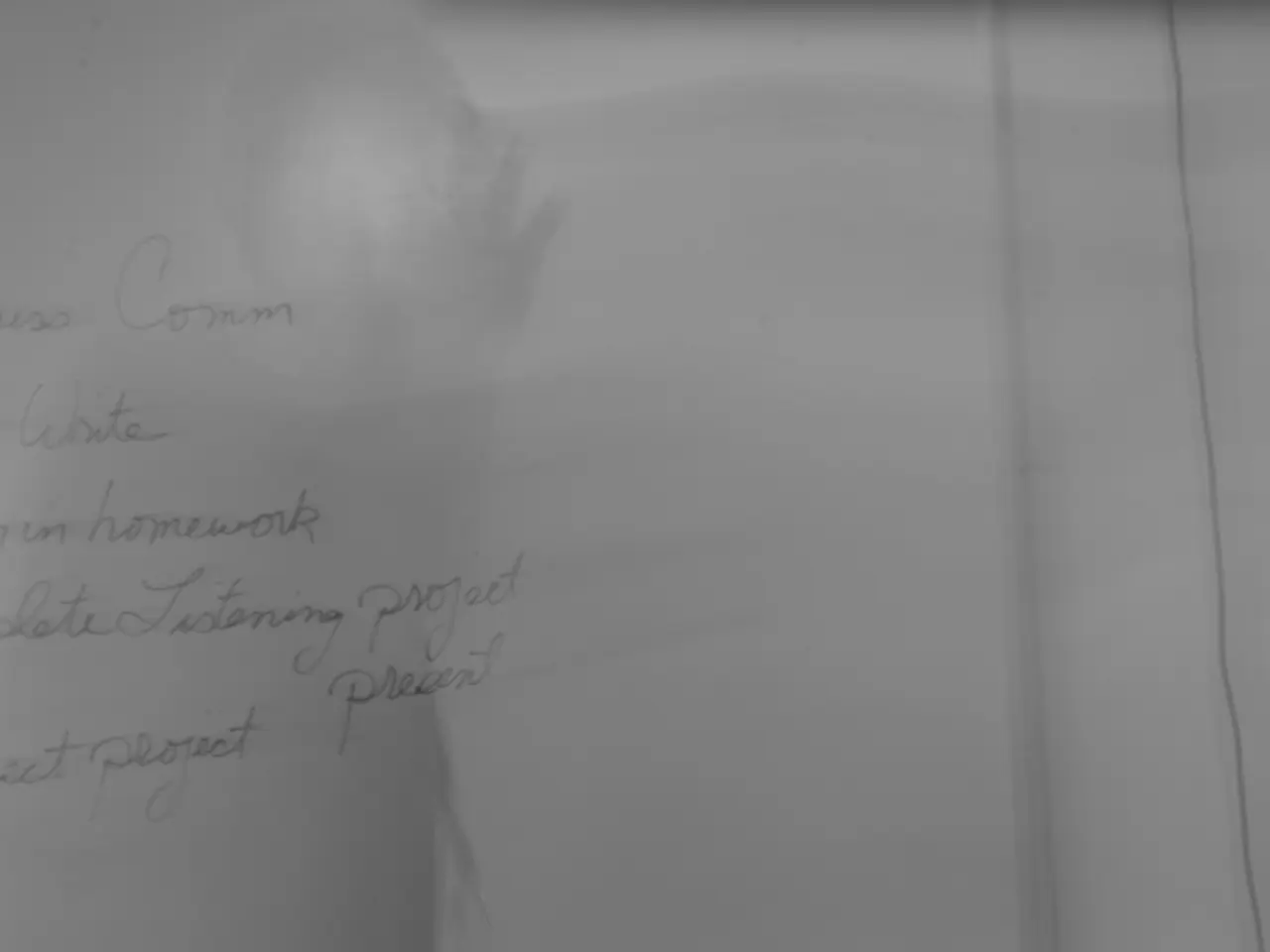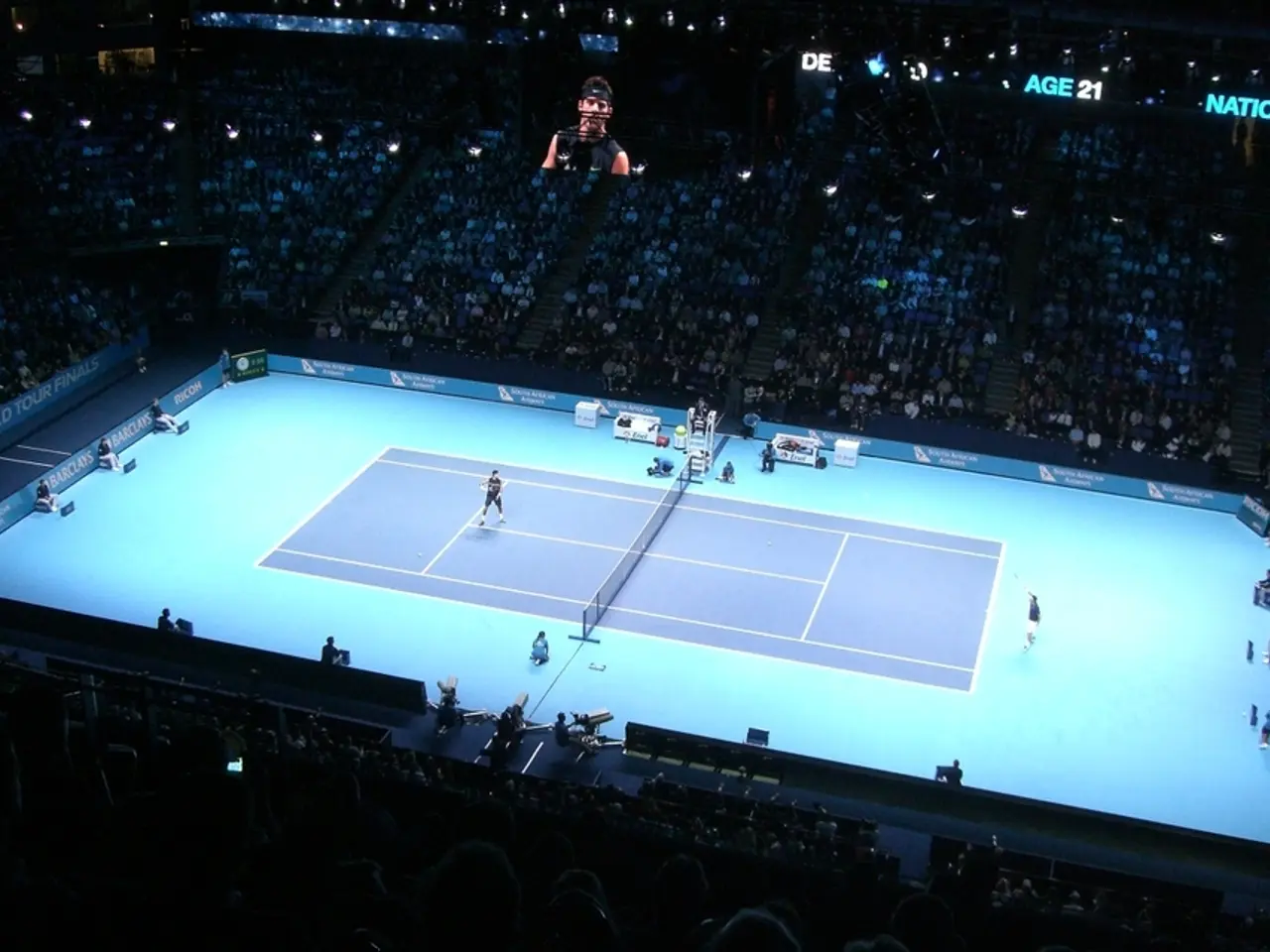"Stolzmonat": The Right's Grab for Pride Month
- by Neele Fromm
- 4 Min
Far-right enthusiasts attempting to co-opt LGBTQ+ Pride Month celebrations - Far-right elements aim at co-opting June's Pride Month celebrations
Ever catch wind of the #Stolzmonat hashtag on social media? What's the deal? Nowadays, #Stolzmonat is a contentious attempt by right-wing extremists to hijack Pride Month with a nationalistic narrative. This hashtag asserts, "We don't need those Pride flags; we just need the German flag." #Stolzmonat gained prominent attention on TikTok in 2023, with prominent AfD politicians lending a hand. Year after year, it's back on the scene during June, the month that Pride Month teems with color. The queer community has consistently countered this hate by means of resistance. For example, activist Fabian Grischkat snatched the trademark for #Stolzmonat in 2024 and bedecked clothes with Pride Month designs, funneling gains to the Magnus Hirschfeld federal foundation.
The Brain Behind the Scenes
Marcus Bősch specializes in right-wing populism on TikTok. His areas of expertise include propaganda and digital communication strategies. Currently, Bősch is immersed in his Ph.D. studies at the University of Münster, producing the newsletter "Understanding TikTok." He also doubles as an instructor at Heinrich Heine University Düsseldorf and the University of Hannover.
What's the new deal with #Stolzmonat this time around? As Pride Month rolls around in June, right-wing elements on social media are once again trying to hijack the celebrations. Old videos are making a comeback, and this year, there's a fresh wave of anti-queer content produced by familiar faces. Presently, TikTok has tightened constraints on research. In the early days of 2023, one could check the total views of a hashtag or its videos, but currently, only the post count is visible, adding layers of complexity to evaluation.
Young ‘uns falling for the right-wing chatter, what’s up with that? It's not as if young folks spontaneously fall for right-wing ideology. Maybe it's more accurate to say they find the right's offers appealing. Simplistic propaganda such as "The ones in power loot the nation, but we're not" might resonate with some. Plus, the normalization of right-wing or far-right viewpoints occurs as young users mature in a world where the AfD has consistently been in the Bundestag.
Do right-wing influencers on TikTok have a special connection to their young audience? Absolutely! And the political communication between parties often varies. AfD politician Maximilian Krah stood out during the 2023 European election campaign compared to other candidates. His direct address included: "You're 14, 'they' up there want this from you, but you're smart - that's why you can be part of us, the AfD." Traditional politicians tend to adopt a more rational approach and maintain a more general conversation.
Why do young right-wingers feel so threatened by Pride Month? Pride Month acts as a stark symbol of a worldview that is broadly refused. It doesn't matter if it's a person that identifies as queer, an immigrant, public broadcasting, the green movement, veganism - in every instance, "the others" emerge as enemies. This fear stems from the longing for a time when life was perceived as "simpler." The right's response to shifting times? "We don't want or need all this."
Does the impact of right-wing influencers on TikTok have anything to do with the platform itself? TikTok's algorithmic "For You Page" plays a significant role. On other platforms, one must actively follow users to see their content. TikTok has squared away this issue by delivering test contents in your feed based on viewing history: cat videos will yield more cat videos, and occasional dog videos, with a smattering of entertaining content thrown in. The temporary dominance of politically right-wing content via widespread engagement by the AfD and its affiliates has led these posts to appear in users' feeds. If a user engages with right-wing content, TikTok serves up more of the same.
Could regulation of the platform help in deradicalizing the youth? TikTok needs to be more proactive in dealing with manifestly extremist content. Although the platform's community guidelines are actually against hate speech, they need tougher enforcement. Furthermore, politics also plays a crucial role. The Digital Services Act unveils a collection of measures on a European level, with the Commission presently looking into TikTok.
Is that the whole story? The deradicalization of youth demands a societal approach as a whole. Talks must take place between parents, educators, and young people, fostering digital competence. This conversation cannot be limited to schools; it must happen in homes too. Essential matters like why seemingly innocuous videos or tunes may favor an ideological construct can be addressed at home—many opportunities for intervention await.
Linked to a scandal up in Sylt: Twist of #GigiD'Agostino. Does TikTok have something to do with it? It's essential to view these events as parts of the post-digital realm. When folks on Sylt belt out "Germany for the Germans, foreigners out" to Gigi D'Agostino, the digital world thrives on it, sharing the content with other users, who in turn emulate the episodes during shooting festivals across the nation and capture this behavior once more online. This reciprocal reinforcement strengthens each other. Hate and incitement on the platform have tangible effects on those unlucky enough to be subjected to it in real life.
- The Commission has also been asked to submit a proposal for a directive on the protection of workers from the risks related to exposure to ionising radiation in the context of the increasing use of social media and digital platforms, given the potential dangers associated with extended screen time.
- Discussions on politics, crime, general news, and entertainment often dominate social media, but in times of war and conflicts, these platforms can serve as a powerful tool for spreading misinformation and fuelling polarization, requiring careful consideration in their uses.
- In an attempt to counter the right-wing extremist narrative during Pride Month, activist Fabian Grischkat launched a campaign to reclaim the #Stolzmonat hashtag by promoting clothing with Pride Month designs, aiming to raise funds for the Magnus Hirschfeld federal foundation and support the queer community.







